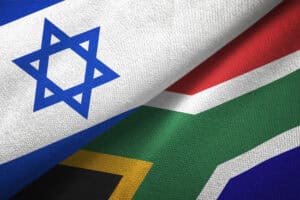The International Court of Justice found that Israel was an “occupying power” in Gaza.

The Department of International Relations and Cooperation (Dirco) says the International Court of Justice findings that Israel was an “occupying power” in Gaza underscores that there is no legal ambiguity regarding Israel’s obligations.
Pretoria welcomed the ICJ’s advisory opinion issued by the International Court of Justice (ICJ) on Tuesday, 22 October 2025.
Advisory opinion
The ICJ ruled that Israel must allow aid into Gaza, and its restrictions on doing so over the past two years have put it in breach of its obligations.
ICJ President Yuji Iwasawa said Israel was “under an obligation to agree to and facilitate relief schemes provided by the United Nations and its entities”.
ALSO READ: Israel accused of starving Gaza ‘by design’ — South Africa addresses ICJ
Israel’s obligations
Dirco spokesperson Chrispin Phiri said the Court’s advisory opinion “authoritatively interpreted” and reaffirmed Israel’s already existing obligations under binding international law.
“The ICJ’s findings underscore that there is no legal ambiguity regarding Israel’s obligations to facilitate and respect the mandates of independent and impartial international and humanitarian organisations operating in the Occupied Palestinian Territory, including Israel’s binding obligations under international law to respect and protect the privileges and immunities of the United Nations and entities, including their premises and personnel.
“Starvation”
Phiri said South Africa also notes in particular that the ICJ recalled Israel’s obligation not to use starvation of the Palestinian civilian population as a method of warfare.
“The Court further emphasised Israel’s responsibility as an occupying Power to ensure that the population of the Occupied Palestinian Territory has the essential supplies of daily life, including food, water, clothing, bedding, shelter, fuel, medical supplies and services.”
The ICJ found that Israel had a duty not to impede the supply of aid by UN organisations, including the beleaguered UN Palestinian relief agency UNRWA, which has been in effect banned from the territory since January.
ALSO READ: Mandela’s wife blasts Israel for interception of Global Sumud Flotilla [VIDEO]
“Arbitrary restrictions”
Phiri said that any arbitrary restrictions or curtailments by Israel that impede such relief operations are inconsistent with its obligations under international humanitarian law.
“As an occupying Power, Israel is prohibited from extending its domestic laws, such as the one banning UNRWA, to the Occupied Palestinian Territory.
“This accords with South Africa’s submissions to the Court that Israel may not deny the Palestinian people’s inalienable right to territorial integrity and sovereignty over the entirety of the Occupied Palestinian Territory, including the West Bank and East Jerusalem,” Phiri said.
International law
Phiri reiterates that it remains imperative that all parties to the conflict must uphold their commitments under international law, including international humanitarian law and international human rights law, without exception.
“As confirmed by the Court, South Africa maintains that the cornerstone of lasting regional peace and stability lies in the full realisation of the Palestinian people’s right to self-determination, through a just and inclusive process,” Phiri said.
Israel responds
The wide-ranging ICJ ruling, which was quickly rejected by Israel, came as aid groups scrambled to scale up much-needed humanitarian assistance into Gaza, seizing upon a fragile ceasefire agreed earlier this month.
“Israel categorically rejects the ICJ’s ‘advisory opinion,’ which was entirely predictable from the outset regarding UNRWA,” foreign ministry spokesman Oren Marmorstein posted on X.
“This is yet another political attempt to impose political measures against Israel under the guise of ‘International Law.”
ALSO READ: Israel and Hamas accuse each other of breaching Gaza truce amid strikes, clashes
Support Local Journalism
Add The Citizen as a Preferred Source on Google and follow us on Google News to see more of our trusted reporting in Google News and Top Stories.








